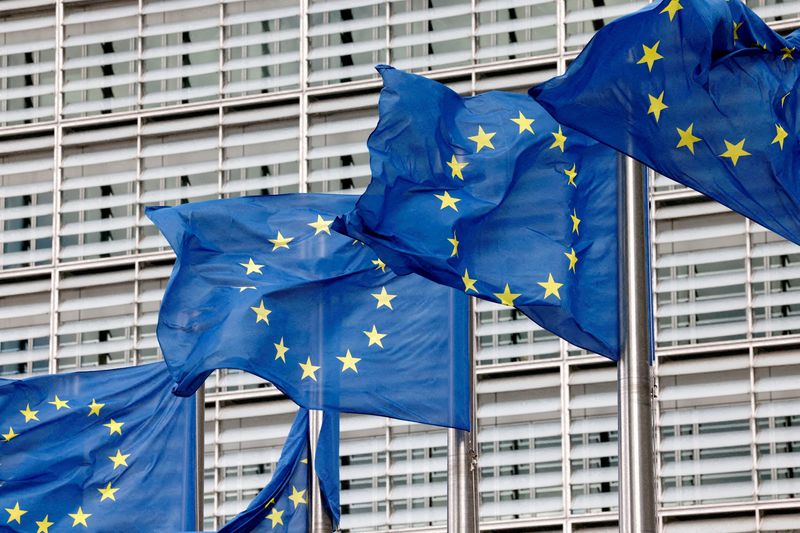EU economy weakens due to sanctions against Russia
2022.12.16 11:07
[ad_1]

EU economy weakens due to sanctions against Russia
Budrigannews.com – Concerns about the impact on Europe’s own ailing economy have begun to weaken the resolve of the European Union to punish Moscow for the war in Ukraine. As a result, unity over sanctions against Russia has begun to falter.
A ninth round of sanctions was agreed upon by EU leaders on Thursday, but discussions were contentious, with Poland and the Baltic states that are neighbors to Russia pushing for more stringent measures while states further west, like Germany, were more hesitant.
EU diplomats told Reuters that some countries, like Greece and Belgium, as well as Hungary, which still heavily relies on energy imports from Russia, resisted more drastic measures.
A government spokesperson for Belgium stated prior to the signing of the agreement at the EU leaders’ summit, “It is becoming increasingly difficult to impose sanctions that hit Russia hard enough, without excessive collateral damage to the EU.”
The European Union acted swiftly against Russia after Russia invaded Ukraine in February, beginning the largest conflict in Europe since World War II. This is unusual for the 27-nation bloc, where opposing voices frequently turn debates into lengthy meetings.
Sanctions have previously been forced on a scope of organizations and Russian people, while overflights by Russian planes have been prohibited and business with a few Russian banks banned.
However, it is now more difficult to come to an agreement.
After the talks this week, Lithuanian Foreign Minister Gabrielius Landsbergis said that the most recent sanctions deal was a “missed opportunity.” He was disappointed that EU states spent more time talking about exemptions than tougher measures.
Among other curbs, the most recent measures targeted entities associated with Russia’s military, restricted drone use, and froze the assets of two Russian banks.
However, tension was felt during the talks. Lithuania and others protested moves to get cut outs to exclude a modest bunch of Russian oligarchs engaged with horticulture and composts, albeit that question was stopped eventually, sources said.
In recent weeks, Poland and the Baltic states, which are closer to the frontline, circulated a proposal for more extensive sanctions, including those against Russian gas and its nuclear industry, as well as arguments against exemptions, such as those against sales of Russian diamonds and steel.
According to a person who is familiar with the situation, some members of that group want Gazprombank—the primary source of energy payments to Russia—to be targeted. The individual stated that many nations were reluctant, but they would discuss these issues in 2023.
More Fed may raise rates above expectations-Williams
The unwillingness of other states to support tougher measures has proven frustrating for some European politicians, such as those from Poland, which faces fighting on its doorstep.
“We will insist that Germany alter its policy.” Radosaw Sikorski, Poland’s former foreign minister and current member of the European Parliament, stated, “It’s not fair for Germany to rely on Poland to defend it from the threat of war.” It is not necessary to always be right just because you are larger and wealthier.
Russia claims that Western sanctions have escalated, resulting in rising energy costs and inflation. Moscow asserts that its own economy is robust.
In the meantime, the EU’s current measures are not always secure. Although the EU set a price limit on Russian oil delivered by sea, Moscow still receives revenue because its crude is selling below the limit.
Although some officials claim that the main effect of the cap is to lessen the bloc’s own restrictions on the oil trade because, as long as the price stays below the cap, European insurers can underwrite Russian shipments, the cap was touted as an additional punishment for Russia.
The oil cap – intended to adjust the entire of the EU to the US – was changed in a sign of approval for Greece and Cyprus, which have huge big hauler armadas, individuals acquainted with the matter said.
During the talks this week, European diplomats and officials told Reuters that the bloc was getting close to its limit.
Edita Hrda, the Czech Republic’s ambassador to the European Union and the country that currently holds the EU presidency, stated, “Now we are careful with sanctions, so that we don’t go so far that we would totally damage the European economy.”
“Some political leaders’ jobs could be lost if we take certain measures against Russia. We must allow the nations time to adjust. “To help Ukraine, we need a prosperous Europe,” said Hrda, who presided over EU countries’ meetings, including those that established the latest sanctions.
Viktor Orban, the prime minister of Hungary, used posters depicting punitive measures like bombs that destroyed Hungary’s economy to advocate against sanctions at home.
Some are more discrete, while others are half-interested in developing a relationship with Russia once the war is over.
“Tighten the sanctions against Russia for as long as Putin continues his war,” the EU’s Olaf Scholz stated this month.
He has also stated that relations are “being reduced, reduced, reduced” but that “a Russia that ends the war” should have an opportunity for economic cooperation once more.








